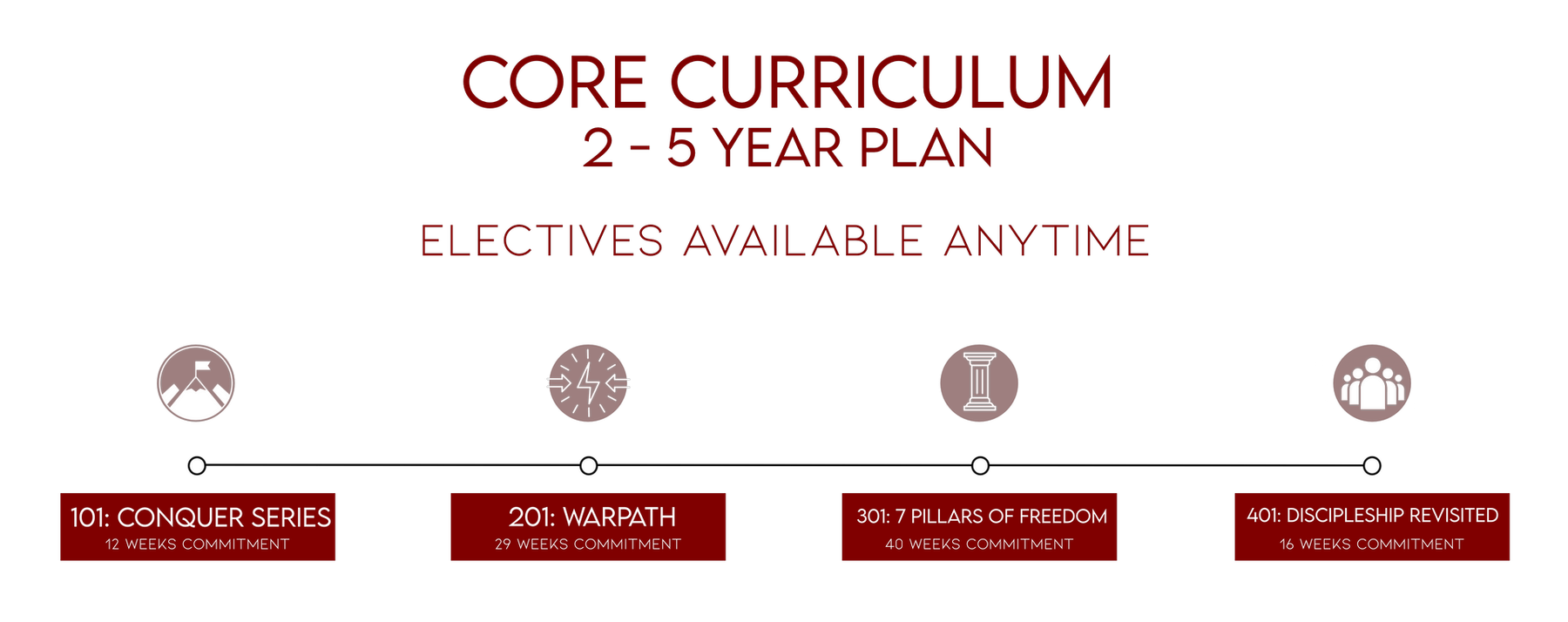By Christopher Leschber
•
06 Jun, 2023
It is easy to get caught up in the constant motion of our lives and lose touch with ourselves. However, self-reflection is a powerful tool that can help us reconnect with our inner selves, gain clarity about our values and aspirations, and unlock personal growth and fulfillment. In this blog article, we will explore the art of self-reflection, its importance in our lives, and provide practical techniques to cultivate this transformative practice. Understanding the Essence of Self-Reflection: Self-reflection is more than just a fleeting thought or occasional introspection. It is a deliberate practice that involves introspecting, examining our thoughts, emotions, and experiences, and gaining a deeper understanding of ourselves. This section will delve into the essence of self-reflection, its role in personal growth, and why it is an essential practice for finding fulfillment. At its core, self-reflection is a process of self-examination and introspection. It is about turning our attention inward and exploring the depths of our inner world. It allows us to observe our thoughts, beliefs, values, and behaviors with curiosity and non-judgment, gaining insights into the patterns and dynamics that shape our lives. Self-reflection is an ongoing practice that requires us to create dedicated time and space for introspection, where we can quiet the noise of the external world and listen to the whispers of our own inner voice. Self-reflection serves as a powerful tool for personal growth. By engaging in this practice, we become more attuned to our own needs, desires, strengths, and areas for improvement. It offers us the opportunity to challenge our assumptions, question our beliefs, and expand our perspectives. Self-reflection helps us uncover our passions, values, and purpose, guiding us towards a more authentic and fulfilling life. Through self-reflection, we gain a deeper understanding of ourselves. We become aware of our emotions, motivations, and triggers, allowing us to make conscious choices and respond to life's challenges with greater clarity and wisdom. It enables us to identify recurring patterns and behaviors that may be holding us back or contributing to our growth. By shining a light on our inner landscape, self-reflection empowers us to make intentional changes and align our actions with our true selves. Self-reflection also fosters self-compassion and self-acceptance. As we explore our inner world, we inevitably encounter aspects of ourselves that may be uncomfortable or challenging. However, through self-reflection, we learn to embrace our imperfections, acknowledge our vulnerabilities, and cultivate kindness and understanding towards ourselves. It allows us to celebrate our strengths and acknowledge our areas of growth without judgment or harsh criticism. Self-reflection becomes a nurturing space where we can offer ourselves the compassion and love we deserve. In today's fast-paced world, where distractions abound and external validation often takes precedence, self-reflection becomes even more crucial. It provides us with an opportunity to disconnect from the noise and demands of the outside world and reconnect with our inner truth. It is in this space of self-reflection that we can hear our own voice, listen to our intuition, and align our actions with our values and aspirations. Practicing self-reflection requires discipline, patience, and openness. It may involve journaling, meditation, engaging in meaningful conversations, or seeking guidance from mentors or therapists. The key is to cultivate a regular practice of self-reflection, creating a habit of introspection that becomes an integral part of our lives. Self-reflection is a transformative practice that allows us to gain a deeper understanding of ourselves and navigate our personal growth journey with clarity and intention. By turning our attention inward, we uncover our authentic selves, embrace self-compassion, and align our actions with our values and aspirations. Let us embrace the essence of self-reflection and make it an integral part of our lives, knowing that it holds the key to finding fulfillment and living a life aligned with our true selves. Creating Space for Self-Reflection: In our busy lives, finding time for self-reflection can be a challenge. However, this section will explore the importance of carving out dedicated time and space for self-reflection. We will discuss practical strategies for integrating self-reflection into our routines, such as journaling, meditation, and unplugging from technology. By prioritizing self-reflection, we can create the space needed to dive deeper into our inner selves. One of the key elements in creating space for self-reflection is acknowledging its significance in our lives. Understanding the transformative power of self-reflection can motivate us to prioritize it amidst our competing demands. By recognizing that self-reflection is not a frivolous indulgence but rather a necessary practice for personal growth and well-being, we can consciously make it a priority in our daily lives. One practical strategy for creating space for self-reflection is through journaling. Carving out a few moments each day to put pen to paper allows us to externalize our thoughts, emotions, and experiences. Journaling provides a private and non-judgmental space where we can freely express ourselves, gain insights, and reflect on our growth journey. It serves as a tangible record of our inner world and offers an opportunity for self-discovery and self-expression. Meditation is another powerful tool for creating space for self-reflection. By setting aside dedicated time to sit in stillness and observe our thoughts and emotions, we can develop a deeper understanding of our inner landscape. Meditation allows us to cultivate a sense of presence and mindfulness, enabling us to detach from the noise of external distractions and connect with our authentic selves. Even just a few minutes of daily meditation can provide a sanctuary of stillness amidst the chaos of our lives. Unplugging from technology is yet another strategy for creating space for self-reflection. In a world saturated with constant digital stimulation, it is essential to disconnect and create boundaries around our use of technology. By setting aside designated periods of time to unplug from screens and external distractions, we create an environment conducive to self-reflection. This intentional disconnection enables us to reconnect with our own thoughts, emotions, and desires, fostering a deeper connection with ourselves. Additionally, incorporating nature and solitude into our routines can provide a nurturing space for self-reflection. Spending time in natural settings, whether it's taking a walk in the park, hiking in the mountains, or simply sitting by a body of water, allows us to tap into the tranquility and wisdom of the natural world. Nature provides a serene backdrop that invites introspection and contemplation, offering a space to reconnect with our inner selves and gain clarity. It is important to remember that creating space for self-reflection is a personal journey, and what works for one person may not work for another. It requires experimentation and finding practices that resonate with our individual needs and preferences. Whether it's through journaling, meditation, unplugging from technology, or immersing ourselves in nature, the key is to prioritize self-reflection as an essential part of our daily routine. Uncovering Self-Awareness: Self-reflection is a pathway to self-awareness, which is vital for personal growth and fulfillment. This section will delve into how self-reflection helps us develop a deeper understanding of our strengths, weaknesses, values, and aspirations. We will explore how self-awareness allows us to make conscious choices aligned with our true selves, leading to a more fulfilling and purposeful life. Self-awareness involves having a clear perception of our own thoughts, emotions, motivations, and behaviors. It is about recognizing our patterns, triggers, and preferences, and understanding how they shape our experiences and interactions with the world. Through self-reflection, we create the space to observe and explore our inner landscape, peeling back the layers to gain insight into who we truly are. One of the key benefits of self-reflection is the opportunity to identify and embrace our strengths. By reflecting on our past accomplishments, challenges overcome, and moments of personal triumph, we can recognize the unique qualities and abilities that make us who we are. Self-reflection allows us to celebrate our strengths and leverage them in various areas of our lives, whether it's in our careers, relationships, or personal pursuits. This self-awareness empowers us to make choices that align with our strengths, leading to greater success and fulfillment. In addition to strengths, self-reflection also helps us uncover our weaknesses. By honestly examining our limitations, areas for improvement, and patterns of behavior that hold us back, we gain valuable insights into the areas where growth and development are needed. Self-awareness of our weaknesses allows us to embrace a growth mindset, seeking opportunities to learn and evolve. It enables us to set realistic goals and take proactive steps towards self-improvement, unlocking our full potential. Self-reflection further deepens our understanding of our values and beliefs. By examining the experiences, relationships, and choices that have shaped us, we gain clarity on what truly matters to us. This self-awareness of our values provides a compass for decision-making, guiding us towards choices that align with our authentic selves. When our actions are congruent with our values, we experience a sense of integrity, purpose, and fulfillment. Moreover, self-reflection helps us uncover our aspirations and dreams. By exploring our passions, desires, and longings, we gain insight into what ignites our enthusiasm and brings us joy. Self-awareness of our aspirations allows us to set meaningful goals and create a roadmap for pursuing them. It empowers us to design a life that aligns with our deepest desires and values, leading to a sense of fulfillment and purpose. Self-awareness also extends to our emotional landscape. Through self-reflection, we become attuned to our emotions, recognizing the triggers and patterns that influence our emotional responses. This heightened emotional self-awareness allows us to navigate our emotions with greater clarity and understanding. It enables us to respond rather than react, fostering healthier relationships, and a more balanced inner state. By uncovering self-awareness through self-reflection, we gain the power to make conscious choices. We become more intentional in our actions, relationships, and pursuits, aligning them with our true selves. This self-awareness helps us set boundaries, make decisions that honor our values, and pursue paths that bring us joy and fulfillment. It allows us to live authentically, embracing who we are and expressing our true selves with confidence and purpose. Self-reflection serves as a pathway to self-awareness, enabling us to develop a deeper understanding of ourselves. Through self-reflection, we uncover our strengths, weaknesses, values, and aspirations, empowering us to make conscious choices aligned with our true selves. Let us embrace the practice of self-reflection, peeling back the layers of our being, and uncovering the essence of who we are. In doing so, we open the door to personal growth, fulfillment, and a life lived with authenticity and purpose. Asking the Right Questions: Effective self-reflection involves asking ourselves thought-provoking questions that encourage introspection and self-discovery. This section will provide a list of guiding questions to jumpstart the self-reflection process. We will explore questions related to personal values, goals, passions, and areas of improvement. By asking the right questions, we can gain valuable insights and make informed decisions for personal growth. The art of self-reflection goes beyond simply observing our thoughts and experiences—it involves actively engaging with ourselves through thought-provoking questions. By posing meaningful inquiries, we stimulate introspection and ignite the process of self-discovery. In this section, we will provide a list of guiding questions designed to jumpstart your self-reflection journey. These questions encompass various aspects of life, including personal values, goals, passions, and areas of improvement. By asking the right questions, we can gain valuable insights, deepen our self-awareness, and make informed decisions that propel our personal growth forward. What are my core values? Reflecting on your values allows you to identify what truly matters to you. Consider the principles that guide your decisions and actions, and how well they align with your authentic self. What are my long-term goals and aspirations? Explore your dreams and aspirations, both personally and professionally. Reflect on what you want to achieve and the steps you can take to turn your vision into reality. What brings me joy and fulfillment? Consider the activities, hobbies, or pursuits that ignite your passion and bring a sense of fulfillment. Reflect on how you can incorporate more of these elements into your daily life. What are my strengths and how can I leverage them? Take stock of your unique strengths, talents, and skills. Reflect on how you can harness these qualities to maximize your potential and make a positive impact. What are my areas of improvement? Honest self-reflection requires acknowledging areas where growth and development are needed. Consider the aspects of yourself that you would like to enhance or improve, and formulate strategies for personal growth. How do I handle challenges and setbacks? Reflect on your resilience and coping mechanisms when faced with adversity. Explore ways to cultivate a mindset that embraces challenges as opportunities for growth and learning. What are my sources of inspiration? Identify the people, books, experiences, or ideas that inspire you. Reflect on how you can incorporate these sources of inspiration into your daily life to stay motivated and driven. How do I define success? Challenge conventional notions of success and reflect on your own definition of what it means to lead a fulfilling life. Consider what truly matters to you and how you can align your goals with your personal values. What are my self-care practices? Explore the ways in which you nurture your physical, mental, and emotional well-being. Reflect on the self-care practices that recharge and replenish you, and commit to prioritizing them. How do I cultivate meaningful relationships? Reflect on the quality of your connections with others. Consider how you can deepen your relationships, foster empathy, and create a sense of belonging and support within your communities. What fears or limiting beliefs hold me back? Identify the fears or self-limiting beliefs that hinder your personal growth. Reflect on how you can challenge and overcome these barriers, empowering yourself to step outside your comfort zone. How do I contribute to the world around me? Reflect on the ways in which you can make a positive impact on the lives of others and the broader community. Consider how you can use your strengths and passions to create meaningful change. Remember, self-reflection is an ongoing practice. As you engage with these questions, allow yourself the time and space to truly delve into your thoughts and feelings. Be open to the insights that emerge and use them as a compass to guide your personal growth journey. By asking the right questions and actively engaging in self-reflection, you can gain a deeper understanding of yourself, make informed decisions, and cultivate a life that is in alignment with your truest aspirations and values. Embracing Growth and Transformation: Self-reflection is a catalyst for personal growth and transformation. It goes beyond understanding ourselves—it empowers us to identify areas for improvement, set meaningful goals, and take purposeful action towards personal development. In this section, we will delve into the ways self-reflection enables us to embrace growth and navigate transformative experiences. We will explore the importance of embracing discomfort and challenges as catalysts for growth and how self-reflection can guide us on this transformative journey. One of the key benefits of self-reflection is the ability to identify areas for improvement. By honestly assessing our thoughts, behaviors, and patterns, we can recognize areas of our lives that may benefit from growth and development. Self-reflection sheds light on our strengths and weaknesses, allowing us to focus on areas that require attention. It invites us to take an honest look at ourselves and identify where we have room to grow. Once we have identified areas for improvement, self-reflection empowers us to set meaningful goals. By aligning our goals with our values and aspirations, we create a roadmap for personal growth. Self-reflection helps us clarify what we want to achieve and why it matters to us. It allows us to break down larger goals into smaller, actionable steps, making our growth journey more manageable and attainable. Embracing growth and transformation requires us to step outside our comfort zones. It involves embracing discomfort and facing challenges head-on. Self-reflection plays a crucial role in this process by helping us navigate through these transformative experiences. As we reflect on our fears, limiting beliefs, and resistance to change, we gain insights into the barriers that hold us back. Self-reflection allows us to confront these barriers, understand their origins, and develop strategies to overcome them. Moreover, self-reflection encourages us to embrace challenges as opportunities for growth. It shifts our perspective from viewing challenges as obstacles to seeing them as stepping stones towards personal transformation. Through self-reflection, we learn to reframe setbacks and failures as valuable learning experiences. We gain resilience and the ability to bounce back stronger from adversity. Self-reflection also fosters self-awareness during times of growth and transformation. It helps us monitor our progress, celebrate our achievements, and make adjustments as needed. By regularly reflecting on our journey, we stay connected to our goals and intentions. We can assess whether our actions are aligned with our desired outcomes and make course corrections if necessary. In addition to personal growth, self-reflection enhances our overall well-being. It allows us to check in with ourselves and prioritize self-care. Through self-reflection, we become attuned to our physical, mental, and emotional needs, and take proactive steps to nurture ourselves. This self-awareness helps us maintain balance and resilience, especially during periods of intense growth and transformation. Embracing growth and transformation requires a commitment to ongoing self-reflection. It is a dynamic process that evolves as we evolve. By engaging in regular self-reflection, we create a foundation for continuous growth and transformation. We become active participants in our own development, constantly seeking opportunities to learn, evolve, and expand our horizons. Self-reflection is a powerful tool for embracing growth and transformation. It enables us to identify areas for improvement, set meaningful goals, and navigate through challenges and discomfort. Through self-reflection, we cultivate self-awareness, resilience, and a willingness to step outside our comfort zones. Let us embrace self-reflection as a transformative practice, allowing us to unlock our full potential and live a life of continuous growth and personal fulfillment. Integration and Application: Self-reflection is not merely an intellectual exercise—it becomes truly impactful when we integrate the insights gained into our daily lives. This section will explore practical strategies for integrating self-reflection into our routines and applying it to various aspects of our lives. We will discuss how self-reflection can guide us in making conscious choices, setting meaningful goals, cultivating self-care practices, and enhancing our relationships with others. Making Conscious Choices: Self-reflection empowers us to make conscious choices aligned with our values, aspirations, and authentic selves. By regularly reflecting on our thoughts, emotions, and experiences, we gain a deeper understanding of what truly matters to us. We can then apply this understanding to make deliberate choices in our personal and professional lives. Self-reflection helps us pause and consider the consequences of our actions, enabling us to make decisions that align with our highest intentions. Setting Meaningful Goals: Self-reflection plays a vital role in goal setting. By reflecting on our desires, passions, and strengths, we can identify goals that are meaningful and aligned with our values. Through self-reflection, we gain clarity on what we want to achieve and why it matters to us. This clarity enables us to set goals that inspire and motivate us, increasing the likelihood of achieving them. Regular self-reflection helps us track our progress, adjust our goals if needed, and celebrate milestones along the way. Cultivating Self-Care Practices: Self-reflection is essential for nurturing our well-being and practicing self-care. By engaging in self-reflection, we become attuned to our physical, mental, and emotional needs. We can identify areas where we may be neglecting self-care and make conscious efforts to prioritize our well-being. Self-reflection helps us explore self-care practices that replenish and rejuvenate us, such as mindfulness, exercise, journaling, or engaging in hobbies. By integrating self-reflection into our self-care routines, we ensure that our well-being remains a top priority. Enhancing Relationships: Self-reflection deepens our understanding of ourselves and others, facilitating more meaningful and authentic connections. By reflecting on our thoughts, emotions, and communication patterns, we can become more aware of how we interact with others. We can identify areas for improvement, such as active listening, empathy, and effective communication. Self-reflection allows us to cultivate compassion and understanding, leading to healthier and more fulfilling relationships. It helps us navigate conflicts, express ourselves authentically, and build trust with others. Practicing Gratitude: Self-reflection can be integrated with the practice of gratitude, enhancing our overall well-being and positive outlook on life. By reflecting on our experiences and focusing on the positives, we can cultivate a mindset of gratitude. We can regularly take time to reflect on the things we are grateful for, both big and small. This practice fosters a sense of appreciation and contentment, helping us find joy in everyday moments and maintain a positive perspective. To integrate self-reflection into our lives, it is helpful to establish dedicated time and space for reflection. This could be through journaling, meditation, or simply taking quiet moments to reflect. By incorporating self-reflection into our daily routines, we make it a habit and prioritize its importance. It is also beneficial to create a supportive environment that encourages self-reflection, whether it is through seeking accountability from a trusted friend or joining a community focused on personal growth. In conclusion, self-reflection becomes truly transformative when we integrate it into our lives and apply the insights gained. By making conscious choices, setting meaningful goals, cultivating self-care practices, and enhancing our relationships, we can harness the power of self-reflection to live more intentional, fulfilling lives. Let us embrace self-reflection as a guiding practice, allowing it to shape our decisions, nurture our well-being, and strengthen our connections with ourselves and others.


















